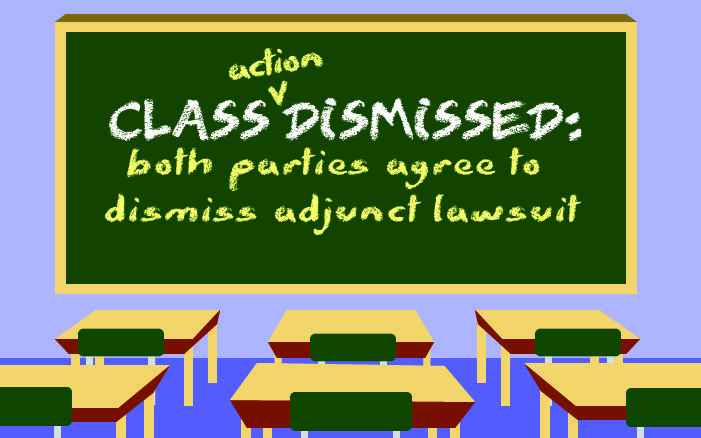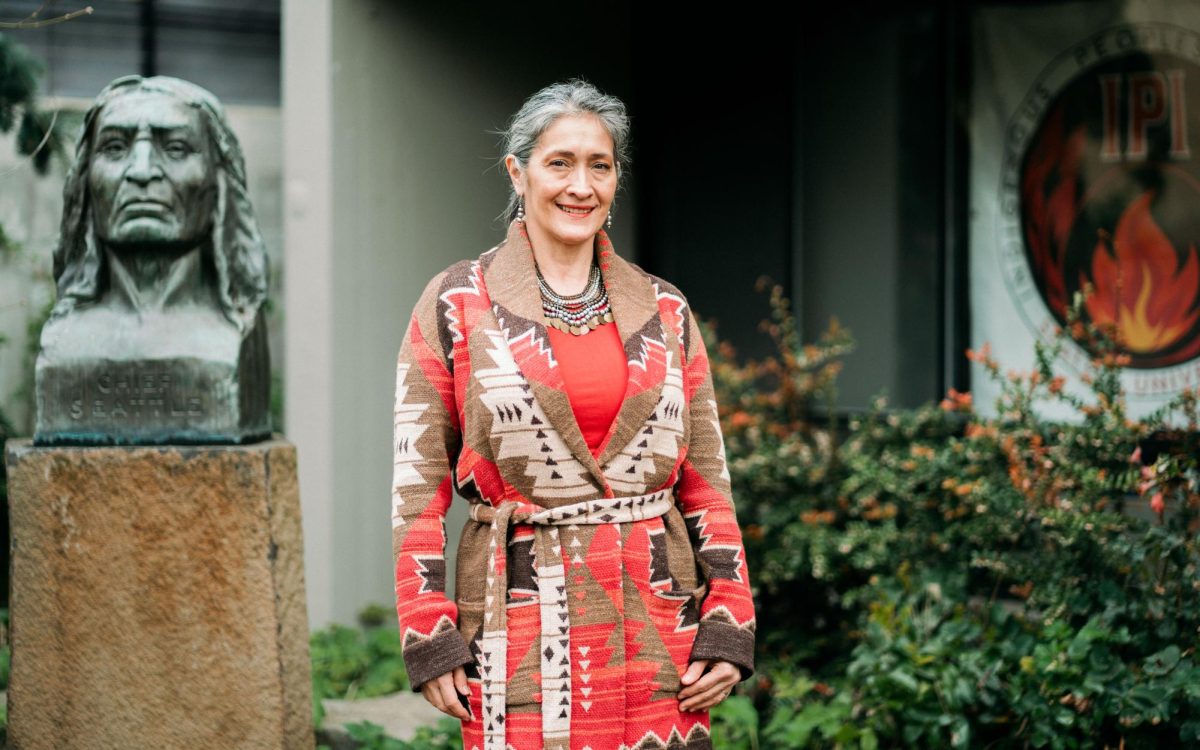A judge has dismissed the lawsuit filed by a former Seattle University adjunct professor in early January against the university, which alleged that the university withheld wages and did not pay adjunct professors for their rest periods.
According to Seattle U Legal Counsel Mary Petersen, the university paid a settlement fee of less than $3,000 in exchange for the plaintiff’s voluntary agreement to dismiss the case.
The court filed an Order for Dismissal with Prejudice on March 26, prior to the start of spring quarter. Both parties agreed to the dismissal when Seattle U, represented by James Sanders, responded to the lawsuit on Feb. 6, citing that the state Supreme Court had rejected an almost identical case in 2003.
Because the case was dismissed “with prejudice,” the plaintiff can no longer bring this same issue to court in the future.
The former adjunct professor was represented by a legal team, made up of Craig Ackermann, India Bodien, and Brian Denlinger.
“Ms. Custis’s attorneys reviewed the law in Washington and agreed her case should be dismissed, but still asked that the university pay Ms. Custis a nominal sum (less than a course fee) to dismiss her claims voluntarily,” Petersen said in an email to The Spectator.
Petersen said that Seattle U paid the small settlement fee instead of going through the expensive legal process.
Adjunct professors at Seattle U are paid per course. The lawsuit claimed that the pay amount per course did not account for time spent preparing for the course, “including, but not limited to, grading papers and course materials, creating online course materials, developing course materials, attending mandatory faculty meetings, assisting students with senior symposium, answering student questions, and pre-and-post course preparation,” according to a copy of the lawsuit obtained by The Spectator.
This lawsuit was a class-action lawsuit, meaning that the adjunct professor was suing for alleged damages against an estimated 200 additional adjuncts who, according to the lawsuit, had their wages withheld or had missed paid breaks.
In an email statement to The Spectator, the legal team representing the former adjunct professor said that in California, adjunct professors are required to be paid at least $960 per week in order to be considered “salary exempt.” In Washington, however, the threshold is $455—about half of California’s minimum.
“Since the WA Supreme Court has held that this is the law in the Clawson case, we were forced to dismiss the putative class action claims without prejudice and resolve the matter individually,” the legal team said in an email statement to The Spectator.
The dismissal of this case marks the end of one of the latest legal action adjunct professors have taken against Seattle U for allegedly mistreating its employees.
The previous lawsuit was filed when Seattle U refused to let non-tenure- track faculty unionize after they put it to a vote in 2014. The National Labor Relations Board had facilitated the vote, and as a result, Seattle U argued that the federal government’s interference in the affairs of Seattle U’s employees could interfere with its religious character as a Jesuit university.
The university planned to continue to escalate the legal conflict until it reached the U.S. Supreme Court, but the adjunct faculty, represented by the Service Employees International Union, dropped the lawsuit in January 2018.
Though this class-action lawsuit will not go through the legal system, the adjunct professor’s legal team emphasized that they see the Washington law as unjust.
“We join with those who are frustrated by the existing WA law and would be willing to meet with anyone interested in lobbying for a change in WA law,” the legal team said in their email statement.
Josh may be reached at
[email protected]












